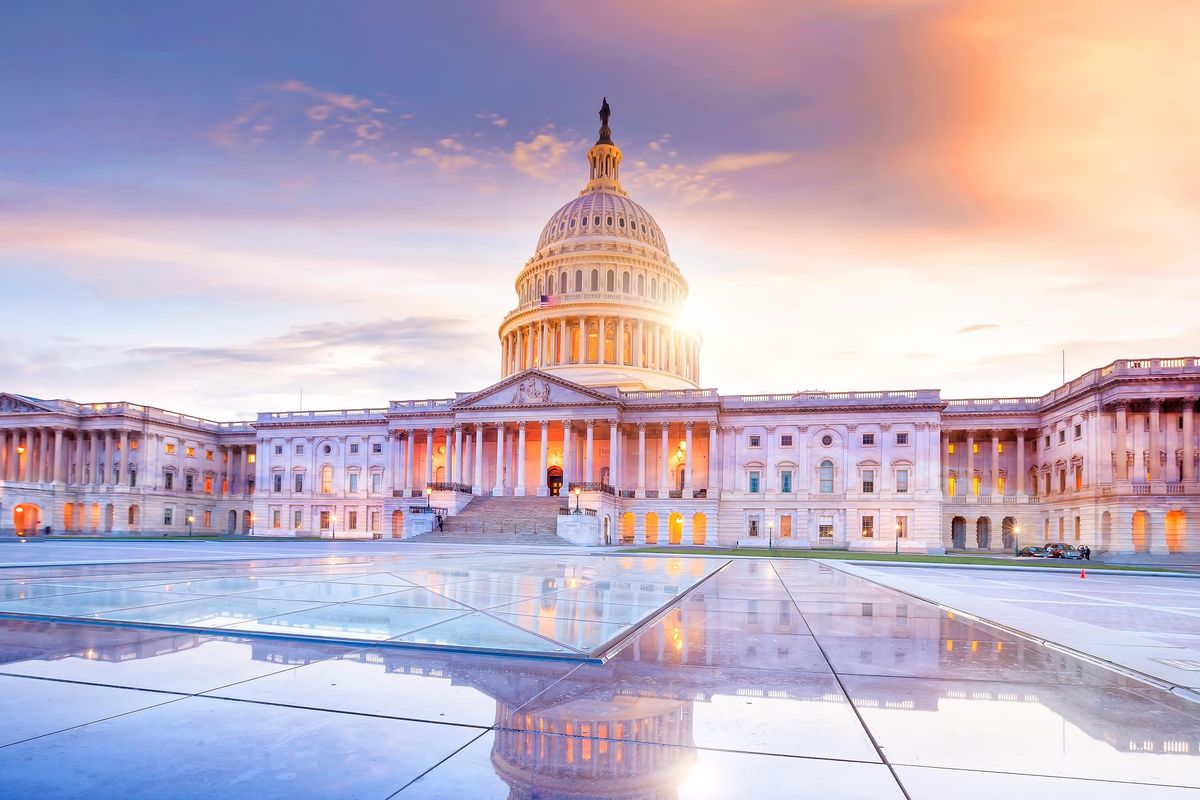1. In a new op-ed, HealthyWomen urged the NIH to increase funding for research into women’s health
In honor of Women’s Health Week during May, HealthyWomen Senior Policy Advisor Martha Nolan penned an op-ed in The Hill. In the piece, Nolan urged the National Institutes of Health (NIH) to fund scientific research to improve women’s health. Historically, research funding has favored men by overinvesting in studying conditions that disproportionately affect men and underinvesting in conditions that disproportionately affect women, according to Nolan. Only 11% of the NIH budget in 2020 went to women’s health issues. Correcting this imbalance, she argued, would have a positive impact on research overall, the economy and women’s health.
2. HealthyWomen rallied support for HPV vaccination in the Biden administration’s Cancer Moonshot
This month, HealthyWomen wrote a letter to President Biden and Dr. Jill Biden in support of incorporating human papillomavirus (HPV) vaccination efforts into the administration’s Cancer Moonshot. The letter was co-authored by HPV Cancers Alliance and had 51 additional co-signers. The letter expressed support for the existing Cancer Moonshot and its goal of cutting cancer deaths in half over the next 25 years. The authors urged the Bidens to build on the $15 million allocated to HPV vaccination in the fiscal year 2024 budget and take steps to expand use of HPV vaccines, which could prevent more than 90% of cancers caused by HPV each year. Those steps include promoting proven practices, such as vaccinating girls against HPV starting at age 9, running campaigns to encourage people to get HPV vaccines, and ensuring that members of the United States military have access to HPV vaccines.
3. HealthyWomen expressed support for new vaccines to prevent RSV
In mid-May, an advisory panel of the U.S. Food and Drug Administration (FDA) voted to approve a new vaccine to prevent respiratory syncytial virus (RSV) in infants, after previously voting to approve an RSV vaccine for older adults. RSV is a common respiratory virus that causes mild cold-like symptoms in most people but can cause severe illness and death in some people, particularly in infants and older adults. RSV kills an estimated 6,000 to 10,000 older adults each year, according to the FDA. The FDA panel is also reviewing an RSV vaccine that would be given to pregnant women. Martha Nolan, HealthyWomen Senior Policy Advisor, provided public comments to the FDA in support of the approval of maternal RSV vaccines as an essential tool to protect women across the lifespan.
4. A single HPV vaccine dose could prevent cervical cancer
Scientists have reason to believe that even a single dose of HPV vaccine can prevent HPV infections, and likely lower the rates of cervical cancer, for at least three years, according to a study of more than 2,000 young people in Kenya. The World Health Organization has updated its guidance in support of a single dose of HPV vaccine, estimating that using a single-dose strategy could prevent 60 million cervical cancer cases around the world in the next 100 years. The CDC recommends most girls get two doses of the HPV vaccine, given six to 12 months apart, by age 15. However, the new evidence from Kenya suggests that even the first dose offers protection against HPV infection for some length of time.
5. Women should get breast cancer screening starting at age 40, according to new recommendations
The U.S. Preventive Services Task Force released new recommendations this month advising all women 40 years and older to get screened for breast cancer every other year. The task force had previously recommended women start getting mammograms to screen for breast cancer starting at age 50, although the American Cancer Society was recommending that women at average risk consider breast cancer screening starting at age 40.
6. Scientists shed new light on the cancer risk for women with dense breasts
New research, released late last month, may help explain the relationship between dense breasts and breast cancer risk. Scientists analyzed the change in breast density in 10,000 women over a decade. Among the 289 women who developed breast cancer during the study period, breast density was higher to start with compared with women who did not get cancer. Interestingly, scientists found that breast density declined more slowly in breasts that developed cancer compared with the other breast on the same patient. Though breast density tends to decline with age, the findings suggest that breast cancer is more likely to develop in breasts that lose that density more slowly than others.
7. FDA approvals pave the way for new medication access for women
This month, the FDA approved a new nonhormonal drug to treat menopause symptoms. The new daily pill treats symptoms like sweating, flushing and chills. Different from other available medications, this new treatment does not use hormones but rather targets brain receptors that regulate body temperature.
Also this month, an advisory panel voted unanimously to recommend that the FDA make a birth control pill available over the counter without a prescription. The drug under review is a progestin-only pill, instead of a combination of progestin and estrogen, so it is considered safer but also potentially less effective if not taken at the same time each day. The drug has been FDA approved for decades with a prescription.
8. Maternal mental health is getting much-needed attention in Washington
This month, lawmakers in the United States House of Representatives requested data from the Health Resources and Services Administration (HRSA) to evaluate maternal mental health programs in light rising rates of maternal death and mental health conditions. The representatives are seeking results from the National Maternal Mental Health Hotline, which launched last Mother’s Day and recently reported it has fielded 1,000 calls and texts per month since launching. They have also requested data on the Screening and Treatment for Maternal Depression and Related Behavioral Health Disorders.


